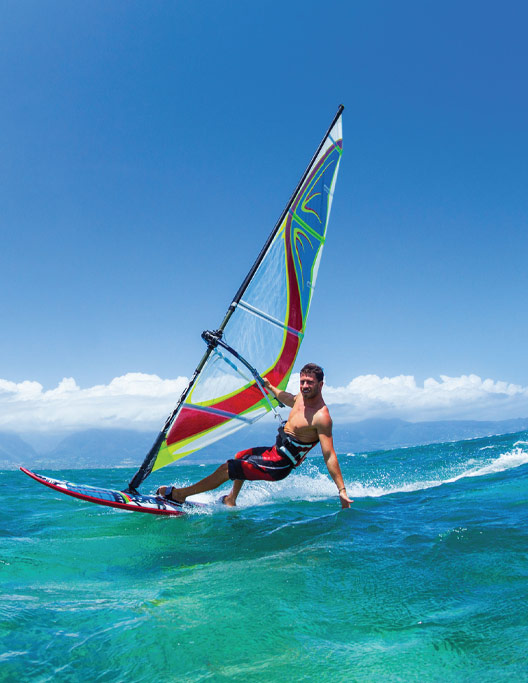
Summer Fun Without Summer Pain
Written by Shawn Skinner, PTA
As the summer season begins, friends and family vacations and trip planning gets into full swing. A question often asked by patients preparing to embark on summer excursions is, “Is it okay for me to go to the beach?” South Carolina boasts a bounty of picturesque coastlines from the iconic Myrtle Beach to low-country favorites- charming Kiawah Island and the bustling Isle of Palms. Drawing crowds of tourists and native Carolinians alike, the lure of white sand, open ocean, and delicious seafood is hard to resist. For a patient with complaints of lumbar pain or recovering from a knee or hip replacement, a fun-filled day at the beach can result in a nightmare of residual pain and discomfort. However, by researching your specific destination and carefully planning your daily activities, one can bypass the hazards and trip-ups that can sideline you from beach life’s fun and adventure.
Walking on the beach can be beneficial for cardiovascular health and overall fitness; for those with symptomatic knee pain, walking on the beach is often discouraged. Following a total knee replacement, hip replacement, or other surgical intervention, prolonged walking activities on uneven terrain should be limited. According to the Jacksonville Orthopedic Institute, beach terrain’s unpredictable and unstable surface can increase stresses, strains, and loading on your joints. “Walking in the softer sand requires increased energy expenditure, forcing you to work harder than walking on an even, firm surface” (Clayton, Nikki, 2022, para 2). Accounting for the slope, sand density, and other hazards along the beach can prevent post-activity swelling and pain and avoid re-injury or therapeutic setbacks.
Tips for walking on the beach
If you’re ready to take your walk from the street to the sand, you will want to consider a few factors, including:
- The density of the sand. Softer sand is easier on your bones and joints than wet, packed sand, as it’s more buoyant. Softer sand will also help build more resistance and strength. But note that if you have lower body injuries, it may be best to walk on firmer sand.
- The distance or duration of your walk. Are you new to sandy strolls? If so, take it easy and build your time and speed slowly. This is new terrain, after all. The sand will fatigue muscles that may not work as hard on the treadmill or pavement.
- High tide and low tide. While secondary, it’s essential to be aware of your surroundings and keep an eye on the surf. An unexpected wave can cause you to lose footing and even knock you down.
- While some people prefer to walk barefoot, you will want to wear athletic shoes if you’re going for a longer walk. They will support your arches and ankles and protect your feet from glass, metal, or sharp shells that hide in the sand.
- You will also want to drink plenty of water before and during your workout. Not sure how much? Take a few swigs of water every mile or every 15 minutes.
- Sunscreen. You will want to wear sunscreen, too. Even on overcast days, the sun’s ultraviolet rays can cause burns.
- Wearing a calorie counter or step tracker can help you keep track of your workout. And if you need motivation, consider walking at sunrise or sunset or with a friend. Having a companion (or a view) can keep you going, even when you don’t want to (Zapata, K, 2021).
Enjoying Beach Activities Safely Under Physical Therapy Care
Beach activities do not have to be a source of pain or avoided while under physical therapy care. If you are concerned about exercises you can or cannot participate in due to a painful condition, it is always a good practice to consult your primary care physician and your physical therapist. Identifying potential hazards, and selecting more preferable options, maximizes fun-filled activities while minimizing risks of injury or increased pain throughout the summer season.
Let us help you!
Click here to request an appointment at one of our 11 conveniently located clinics!
References
Clayton, N. (n.d.). Effects of walking on the beach. https://www.joionline.net/library/show/effects_of_walking_on_the_beach/
Zapata, K. (2021). Tips for getting the most from walking on the beach. https://www.healthline.com/health/fitness/walking-on-the-beach
